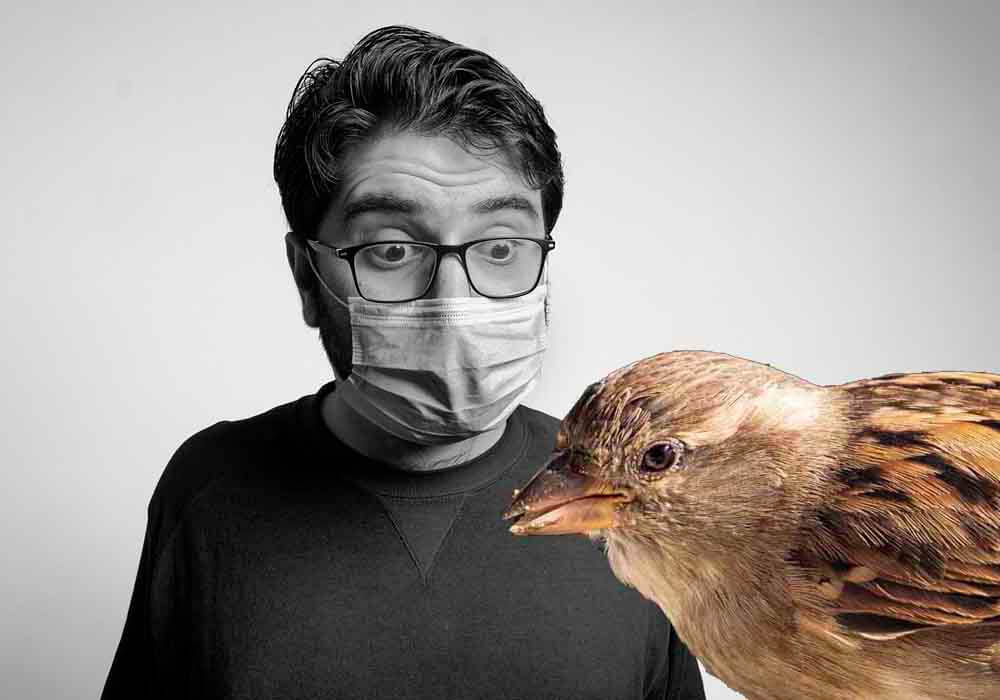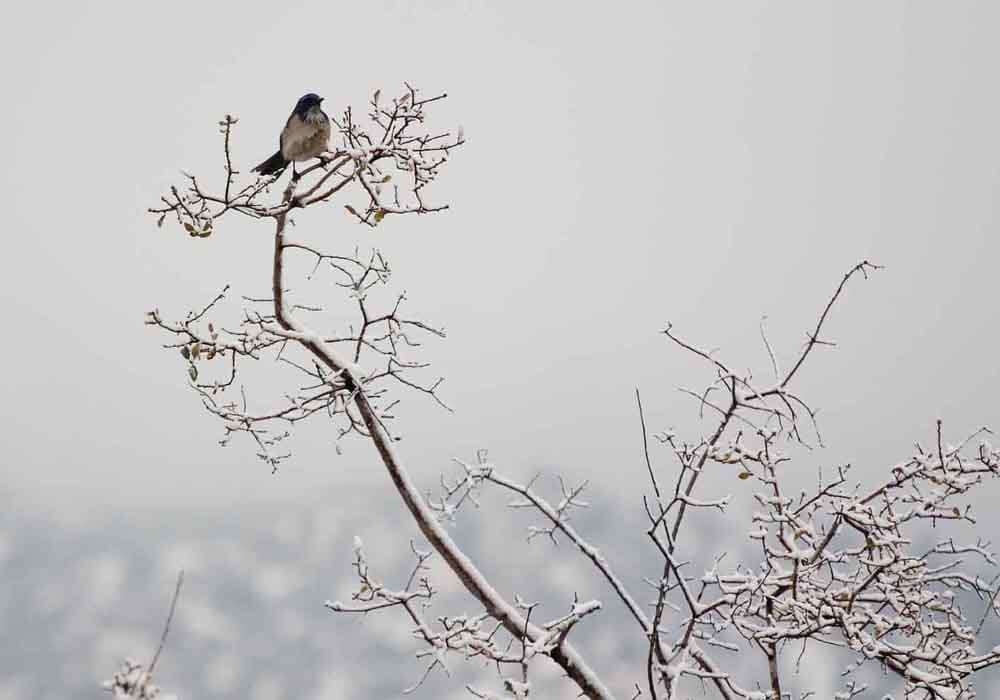Can Birds Make You Sick?
What Diseases Or Bacteria Can They Carry?
Many undomesticated animals can carry diseases out in the wild, on top of certain bacteria they commonly carry. Birds populate most human areas, and you usually can’t go a day without seeing a few birds around. So can birds make you sick?
Birds can make you sick. They can carry many diseases that can affect humans. These can be spread by touching a bird, touching something contaminated with bird droppings, or through mosquito bites. Some of the most common ones are psittacosis, St. Louis encephalitis, and histoplasmosis.
In this article, I will discuss the primary diseases you can get from birds, how they’re treated, how they spread, and how to prevent them.

What Diseases Can You Get From Birds?
Some of the most common diseases you can get from birds are psittacosis, St. Louis encephalitis, West Nile virus, and avian tuberculosis. These diseases are spread by having direct contact with a bird or through mosquitoes.
Most of these diseases have mild symptoms and can be easily cured, but some of them can be severe.
Let’s go over some types of diseases you can get from birds.
St. Louis Encephalitis
Birds carry this disease in their bloodstream but is carried to humans through mosquitos. A lot of times, symptoms will not be present, but if they are, you’ll experience:
- Fever
- Nausea
- Headaches
- Vomiting
In rare severe cases, a person may get meningitis or die from St. Louis Encephalitis. For mild cases, your immune system will clear this disease on its own.
Birds such as pigeons, blue jays, house sparrows, and robins are known to carry this disease.
West Nile Virus
This is another disease that is spread by birds through mosquitos. Birds contract this from eating an infected substance. Cases of the West Nile virus are usually minor, but there have also been severe cases.
Symptoms include:
- Body aches
- Diarrhea
- Vomiting
- Headaches
In severe cases, symptoms can evolve to:
- Disorientation
- High Fevers
- Meningitis
- Coma
- Vision loss
- Tremors
This disease does not result in human death but can be fatal for some birds.
Psittacosis
This disease is spread through direct contact and is mainly associated with birds commonly kept as pets. Psittacosis is airborne and infects open wounds on the skin.
The symptoms are similar to those of the flu:
- Fever
- Fatigue
- Cough
- Muscle aches
Psittacosis isn’t very common, but there was a known wave of infections among a group of farmers in 2018.
If you have a pet bird, be careful when caring for it and cleaning its cage. Always wear gloves and wash your hands afterward. Make sure you dispose of any droppings and feathers properly.
Avian Tuberculosis
This disease is airborne, so it spreads when inhaled. It can take several weeks or months before someone exhibits symptoms after being infected. Avian Tuberculosis can remain in bird droppings for several years.
This disease is easily treated with prescribed medication. Symptoms include the following:
- Fever
- Dehydration
- Vomiting
- Headache
Is Bird Poop Toxic to Humans?
Bird poop can be toxic to humans. Their feces are the primary source of a lot of diseases. These diseases can spread quickly because you can’t control where birds land, and birds are almost everywhere.
We went over diseases that can spread through direct contact or are airborne, but these are infections that lie within birds' digestive tracts. That’s what allows them to spread through bird poop.
Just like the previous group, these diseases rarely evolve into severe cases, but you should still remain alert.
Let’s go over several common diseases that come from bird poop and what symptoms to look out for.
Histoplasmosis
Histoplasmosis is a widespread disease, and it comes from soil infected with bird poop. This disease comes from a bird’s digestive tract fungus and carries infectious spores. The majority of the time, histoplasmosis doesn’t cause any symptoms.
For the small percentage of times the disease is symptomatic, these are the possible symptoms:
- Cough
- Fever
- Tiredness
Cryptococcosis
There are two types of cryptococcosis, cryptococcus neoformans and cryptococcus gattii. Cryptococcosis is a fungal infection that comes from various kinds of birds. It is spread through their droppings.
According to Avia Way, it can take several weeks or up to 3 years to develop an infection after inhaling the spores that are spread in bird poop. Symptoms of cryptococcus neoformans include:
- Shortness of breath
- Cough
- Chest pain
- Fever
However, symptoms regarding cryptococcus Gatti are on a larger scale and can even affect your brain. These symptoms are:
- Disorientation
- Mental confusion
- Headache
- Light sensitivity
- Nausea
- Vomiting
Salmonellosis
Salmonellosis is a disease most people are familiar with and is often considered food poisoning. This is because particles from bird droppings have somehow made it into a food source. They can be spread through a restaurant or even at a food processing factory and quickly contaminate the food.
This disease is why it’s vital to thoroughly cook your food to kill off any bacteria. The main symptoms are intense vomiting or diarrhea.

Believe it or not, there's all kinds of interesting things to learn about (ahem) bird poop. So much so that we've written an article dedicated to just that. Be sure to check our Facts About Bird Poop article.
How Do Diseases Spread Through Bird Poop?
Diseases spread through bird poop because particles can spread through the air. It can even be spread through air conditioners and vents.
Birds are practically everywhere and perch on top of anything they want. It’s not easy to clean every surface a bird ever lands on, especially in a public area you have no control over.
Remnants of fecal matter are in many places and get spread quickly when people come in contact with those surfaces.
A common mistake is having a birdbath, birdhouse, or bird feeder and not being careful with them. Any time you touch any of these objects, it’s best to wear gloves or, at the very least, wash your hands thoroughly afterward. Touching infected surfaces is a sure way to catch a disease.
You can even go as far as wearing a mask to prevent airborne particles from being inhaled. Things such as birdbaths carry a lot of bacteria where birds come and go as they please in that area, and there are sure to be plenty of remnants of bird poop. can birds make you sick
Birds can make you sick, so being careful when out in public places such as parks or other common areas where birds live is essential. Always wash your hands and be careful not to touch your face or others before washing your hands. This will prevent the spreading of diseases.
If you exhibit symptoms that seem to be coming from more than just a common cold, it’s always best to see a medical professional. Try to recall any time you’ve come in contact with birds or where birds might’ve been. This information might be vital.
Can Birds Make You Sick?...Final Thoughts
Birds are known carriers of many diseases that can infect humans. Infections can come from direct contact, airborne particles, and bird droppings. Birds can have viruses in their blood, but most of the diseases come from their digestive tract and are found in their droppings.
Birds are everywhere and can infect different items in public areas. That’s why it’s crucial to regularly wash your hands. Pet birds can also put you at risk, so make sure you’re cautious when cleaning their cage and dealing with their droppings. If you’ve had contact with bird droppings and become sick, seek medical attention.
Back To The TOP Of This Can
Birds Make You Sick Page

About the Author...
Richard Worden, a dedicated bird lover for over 20 years, I love to share my in-depth knowledge and passion for birds. Read more About Me and my expertise in this field.
- We Know Birds HOME ›
- Bird Health and Care Information ›
- Can Birds Make You Sick?



